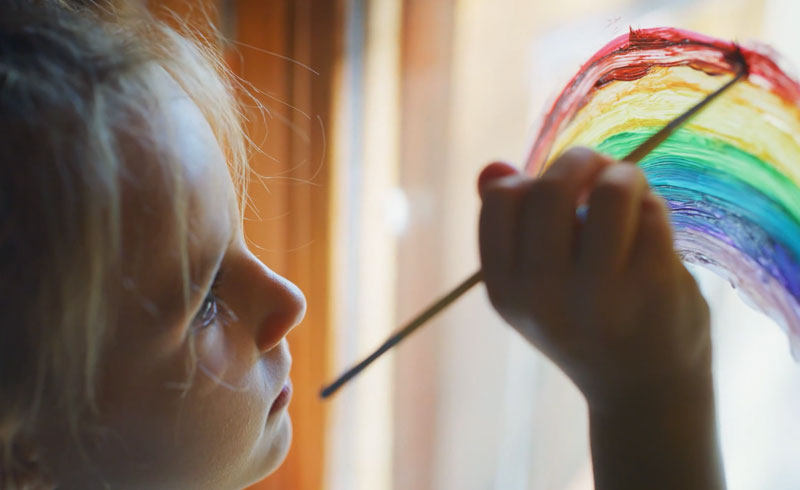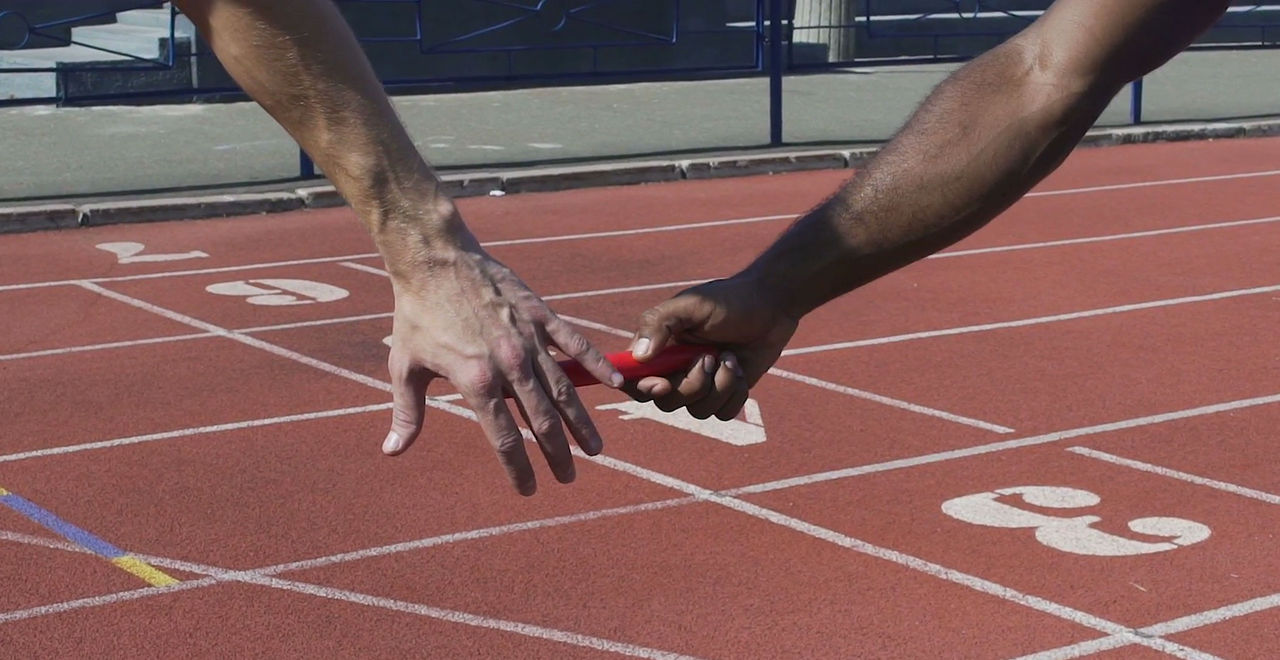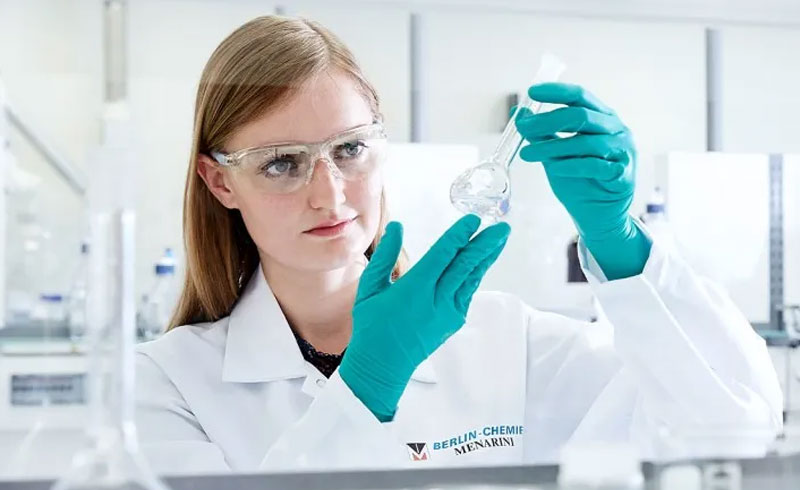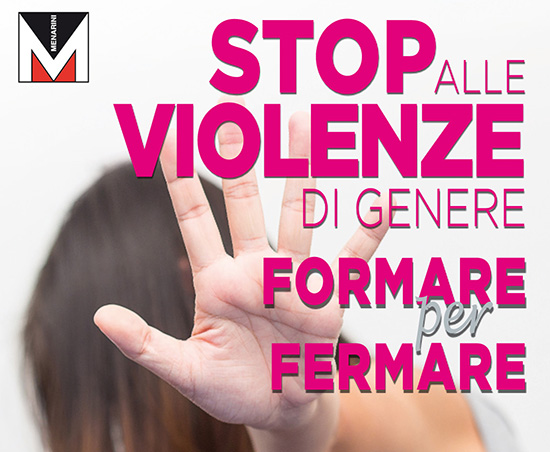The next step in the project entitled "Formare per Fermare” (Putting a Stop to gender-based violence), a series of training courses for journalists supported by Menarini, will be held in Bari on September 24th and, following on from there in other major cities all over Italy. The aim of the project is to encourage journalists to be increasingly correct and attentive in their approach towards the topic of abuse on women, bearing in mind the long-term consequences that this violence also has on those children, who, in 6 out of 10 cases, witness the acts of domestic violence.
Up to date more than 500 journalists have taken part in the training courses held in the cities of Rome, Naples, Milan, and Venice in the presence of experts in the field of gender-based violence such as magistrates, psychologists, criminologists, doctors, and journalists. Further to these courses a proposal to consider “assisted violence” a true crime has been put forward as bearing witness to the abuse and mistreatment of one’s own mother can cause children to suffer both physical and psychological negative effects which are so severe that they last their entire lifetime.
Rome, 10th June 2018 - Overcoming prejudice and stereotypes, providing professional journalists with the right kind of information, sources, data, vocabulary, as well as scientific, psychological, legislative and medical notions to allow them to get a better understanding of the phenomenon of gender violence and thus approach and write about the topic using words that are both correct and appropriate. Too often the way in which the media approaches the subject of gender-based violence seems inappropriate, dwelling on morbid details or indulging in ‘voyeurism’. These training sessions will continue well into the Autumn with the aim of not only raising a general awareness on the problem but also giving journalists the possibility to always select the most appropriate terms to use, without ever considering violence against women as a passing phase or a one-off event, but a topic that needs to be kept firmly in the limelight.

More than 500 journalists have participated in the training sessions, organized with the non-conditional support of Menarini, recently held in Rome, Naples, Milan and Venice in the presence of experts in the field of gender-related violence such as magistrates, psychologists, criminologists, doctors, and journalists. The courses will resume in the Autumn with a first appointment scheduled in Bari on September 24th, whilst other meetings will follow on in forthcoming months.
"Finding the right words when dealing with such a delicate matter is essential: dwelling on what the victim was wearing or describing her wounds in detail is like violating the victims, already profoundly distressed, a second time - says Vincenzo Mastronardi, criminologist and psychiatrist. It also shifts the public attention onto the victim, but in a distorted manner: the women feel they are being judged, as if they were being put in the dock, violated in their intimacy. Words need to be chosen carefully and the topic treated with extreme caution, even if we need to respect freedom of the press, a morbid reading of the facts may lead to serious effects on the victims, as clarified in article 10 of the Venice Manifesto"
"When a woman is a victim of violence and is taken to the emergency room, we need to guarantee that she finds healthcare professionals who are not only trained and attentive, but also suitable place where we may treat her wounds and prevent any further mistreatment being inflicted on her as a result of prejudice - adds Vittoria Doretti, Director of UOC for Promotion and Ethics in Healthcare and Director of the Regional Network ‘Codice Rosa’ set up by the Tuscany Region - This is true not only in a hospital environment but also in the outside world, where, unfortunately, public opinion often puts the victim on trial, accusing the woman herself, what she did or didn’t do, what she said or didn’t say, based upon information reported in the media or inappropriately reported using crude and lurid descriptions which are of no added value to the facts. We need to eradicate prejudice, fight cultural stereotypes which underlie violence and find words that are respectful of women, words that do not place the blame on her and do not lead to hasty decisions, which often endorse the most mistaken of clichés ".
The courses are also an opportunity to focus on data collected on the long-term implications on the children of the victims, a topic which unfortunately is not widely covered but has nevertheless lead to a proposal to introduce the crime of “assisted violence”.
"Today assisted violence is only regarded an aggravating factor, but we would like to see it considered a true offence as it, in fact, a form of mistreatment - observes Alessandra Kustermann, Director of the Emergency Obstetrics, Gynecological, Sexual and Domestic Violence Aid Department at Milan’s Policlinico Hospital. The children and adolescents who witness violence will suffer the negative effects of what they see throughout their lives, effects which often neither the mother nor society are aware of ".
"The consequences are serious, even in adulthood: emotional education is lacking and the traumas of which they have been long term witnesses and indirect victims may have changed their ability to face life – highlighted Danila Pescina, Criminologist and Expert in Psychology of Addictions. Once they grow up the sons of victims of abuse have a greater tendency to be violent in their relationships and the daughters, unfortunately, tend to consider violence their unavoidable fate.
Taking into consideration all the different aspects surrounding gender-based violence, and using the most appropriate words to do so, means that you are bringing out into the open the suffering of both the victims and the witnesses, but without the need to introduce morbid and voyeuristic details which only go towards reinforcing the stereotypes which underlie violence.
"Our support in favor of these courses will continue as we believe it is necessary to create a collective conscience to protect those who are most vulnerable. The project, which began two years ago and is still ongoing, started out with an initiative aimed at fighting child abuse, and now we wish to continue our commitment with top level courses to increase awareness on mistreatment, abuse, and violence against women" concluded Lucia Aleotti, Menarini Board Member.


















